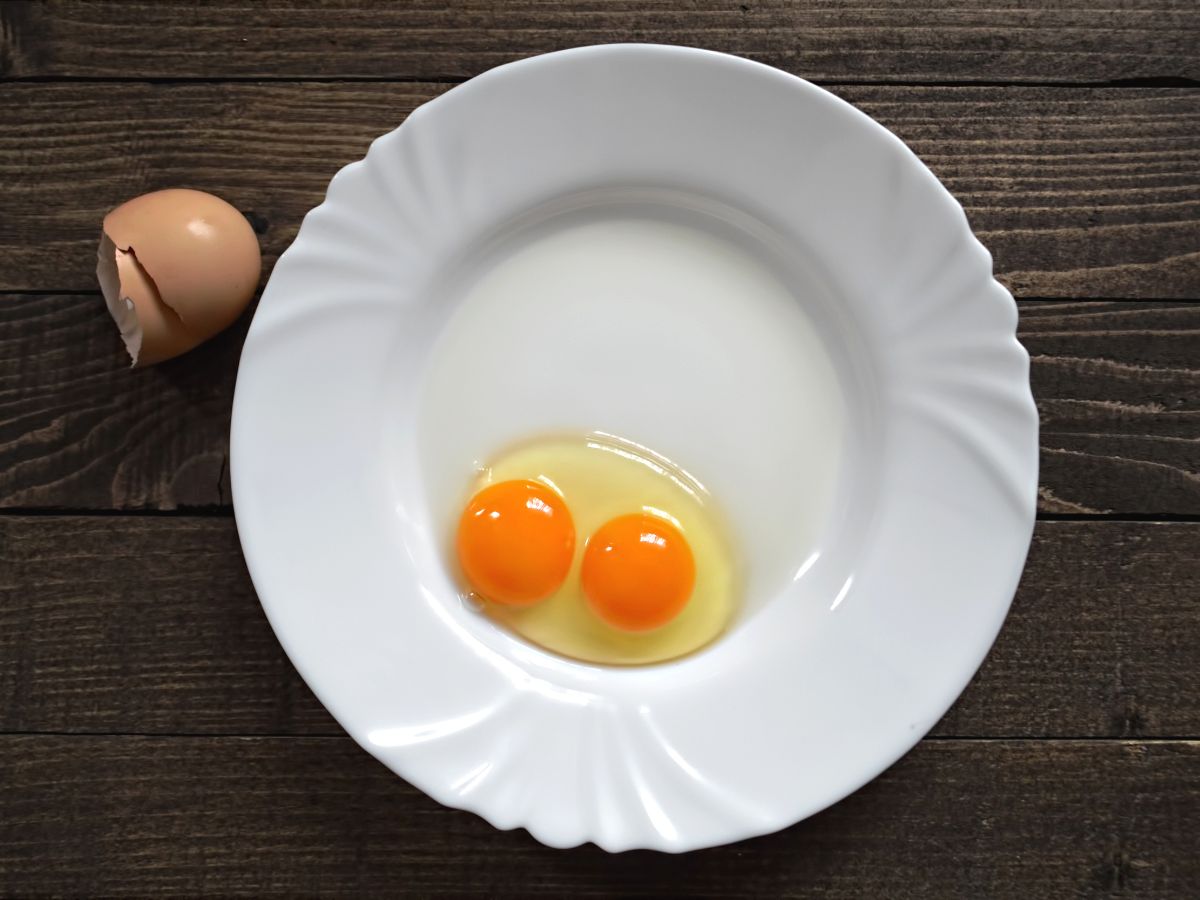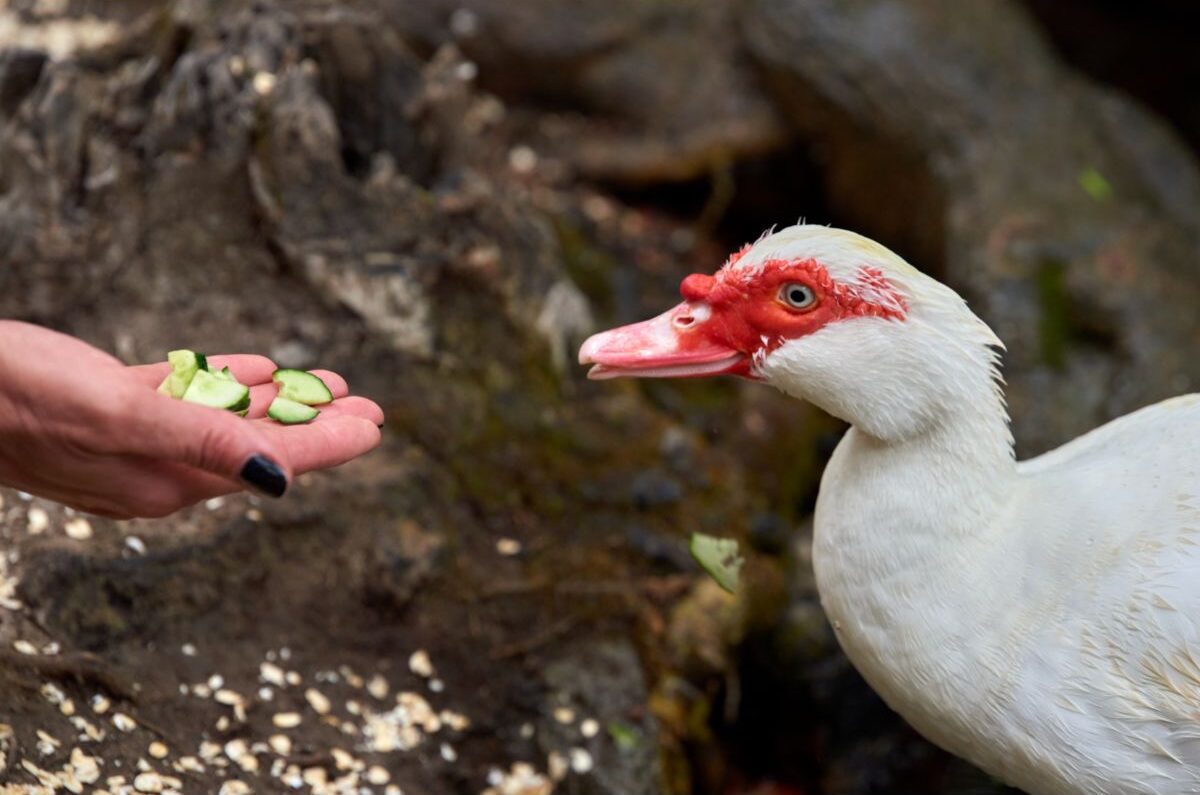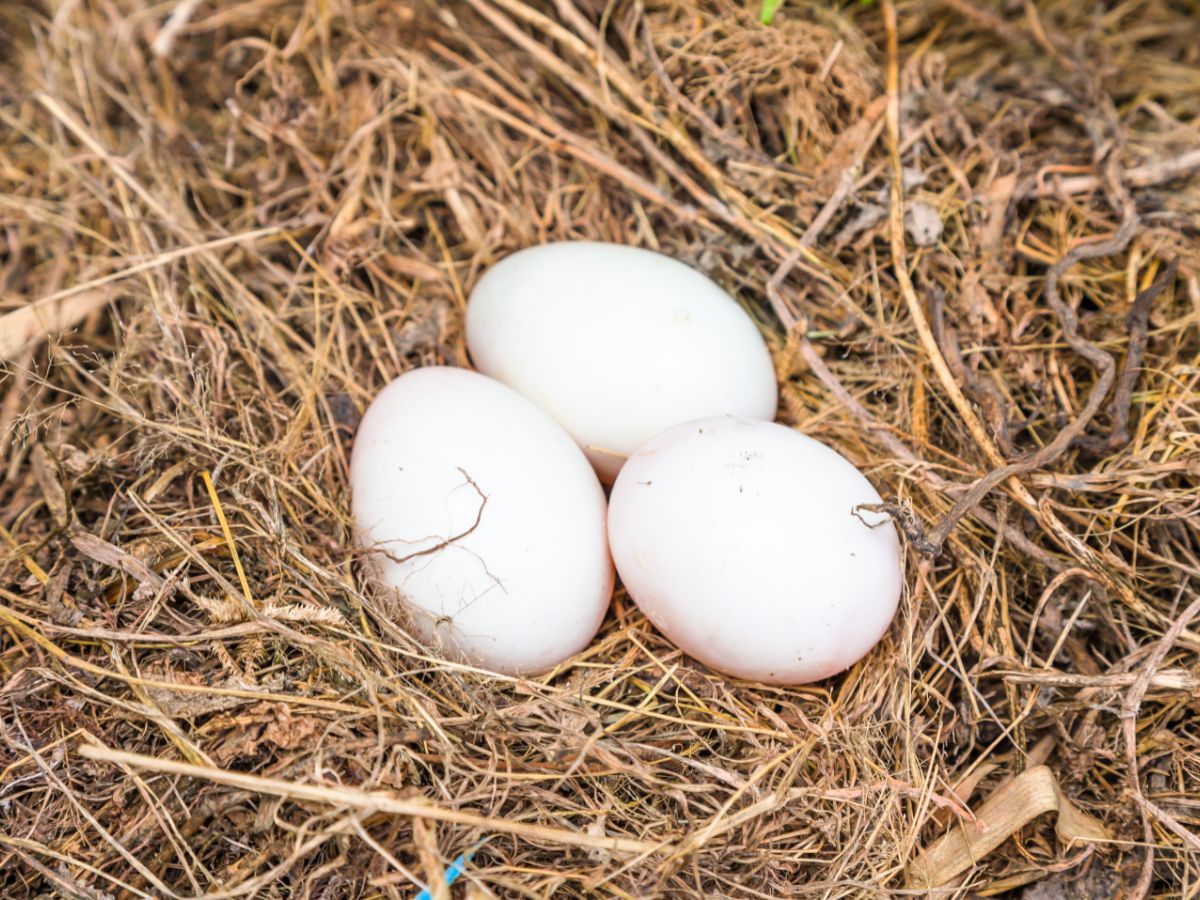Cracking open an egg and finding two yellow yolks inside is always a huge surprise. But what does it mean when an egg has two yolks? Has it been genetically modified, or does it happen naturally?
Double eggs are very rare, but they do occur naturally. Hens produce an egg with two yolks when their ovary releases two yolks instead of one. As the two yolks move through the hen’s reproductive tract, the egg shell forms around the yolks, and the hen lays a double yolk egg.
Double yolk eggs are simply the result of a glitch in hens’ daily ovulation cycle. This article explains how hens’ reproductive systems work and why eggs with two yolks sometimes occur. It also explains why hens of a certain age are likelier to lay double yolk eggs.
Contents
Why Do Some Eggs Have Two Yolks?
To understand why it is possible for some eggs to have two yolks, you must first know the basics of how hens’ reproductive systems work.
Like humans, hens have ovaries, but instead of ovulating once a month, hens’ ovaries release an egg every 25-27 hours. When the egg leaves the hen’s ovary, it is not a fully formed egg yet, but a yolk.
The yolk passes from the ovary into the hen’s fallopian tube, where the albumen (egg white) forms around the yolk. The hard egg shell forms when the egg nears the end of the reproductive tract.
Double yolk eggs are produced when a hen’s ovary accidentally releases two yolks instead of just one. As the two yolks move through the reproductive tract, the albumen and shell form around the two yolks.
Why Do Hens Lay Double Yolk Eggs?
If a hen lays double yolk eggs, does it mean that there is something wrong with its reproductive system? What causes hens to lay double yolk eggs?
Double yolk eggs should not be a cause for concern! It does not mean that there is a problem with the hen laying them.
Hen’s lay double yolk eggs when their reproductive systems are still in the process of gearing up for egg laying. Pullets or young hens most commonly lay double yolk eggs.
As hens’ reproductive systems mature and get into the rhythm of egg laying, they stop producing double yolk eggs.
Sometimes double yolk eggs are laid by older hens whose egg-laying days are nearly over. When their reproductive systems are not as well-regulated as hens who are in their prime, they may lay double yolk eggs.
Are Double Yolk Eggs Rare?
The chances of cracking open an egg and finding two yolks are slim! Double yolk eggs are very rare. The odds of a hen laying a double yolk egg are about one in a thousand.
Can You Make A Hen Lay Double Yolk Eggs?
If you prefer eating double yolk eggs, you may be wondering if there is some way to encourage hens to lay these special eggs. After all, there are some shops that sell whole cartons full of just double yolk eggs!
Unfortunately, scientists and farmers are yet to find a way to ensure that hens lay double yolk eggs. There are no known ways to make a hen lay double yolk eggs.
The reason that some grocery stores can sell boxes of a dozen double yolk eggs is that they source their eggs from farms that use mainly young hens, and they check the eggs before packaging them.
How To Tell If An Egg Has Two Yolks Without Breaking It
It is possible to predict if an egg has two yolks before you crack it open! All you need is a flashlight to “candle” the eggs.
Egg candling refers to the process of holding an egg up to a strong light source to see the structure of the egg on the inside.
You can use a regular torch or even the torch on the back of your phone to candle eggs, but there are also specialized egg candling torches on the market.
In a dark room, hold the potential double yolk egg up to the light, with the widest side of the egg facing closest to the light source. Rotate the egg slowly until you can see inside the egg.
You should see two separate yolks inside the egg.
Are Double Yolk Eggs Safe To Eat?
Some people are worried about how healthy double yolk eggs are to eat. These concerns mostly stem from not understanding why double eggs sometimes form.
Double yolk eggs are as safe to eat as regular single yolk eggs! Double-yolk eggs are not genetically modified in any way, and they do not contain more cholesterol than regular eggs.
Are Double Yolk Eggs More Nutritious?
Does double the yolk mean double the nutrients? Would you be getting more protein or nutrients from a double yolk egg than from a normal egg?
Unfortunately, this is not the case.
Double yolk eggs have the same nutrient profile as single yolk eggs. Each yolk in a double yolk egg is smaller, so the two yolks together are the size of one regular yolk.
Do Fertilized Double Yolk Eggs Hatch?
If a double yolk egg is fertilized, it does not mean that twin chicks will hatch from it! Most double yolk eggs never hatch, even if they do get fertilized.
If two embryos develop inside a double yolk egg, the stronger one usually outcompetes the weaker. In most cases, neither embryo fully develops, and neither of the chicks hatch.
There have been recorded cases in which two chicks have hatched from one double yolk egg, but these are exceptionally rare.
Can An Egg Have More Than Two Yolks?
It is possible for an egg to have more than two yolks, but the odds are even slimmer than for double yolk eggs.
People have found eggs with three or even four yolks. The chances of cracking open an egg with three yolks inside are only one in 25 million!
In July 1971, Diane Hainsworth from Mount Morris, New York, reported that a hen on her farm had laid an egg with nine separate yolks. This set the World Record for the greatest number of yolks inside a single hen’s egg.
Conclusion
Young hens that are in their first few months of egg laying and old hens that are about to retire from laying most commonly lay double yolk eggs. It happens when a hen’s ovary releases two yolks instead of one. As the yolks pass through the hen’s reproductive tract, they become encased in a single eggshell.
If you break open an egg to find two yolks inside, consider yourself very lucky. Double yolk eggs are a rare, natural occurrence, and they are perfectly safe to eat. In some places in the world, like the UK, people even pay a premium for boxes of “double yolkers.”




